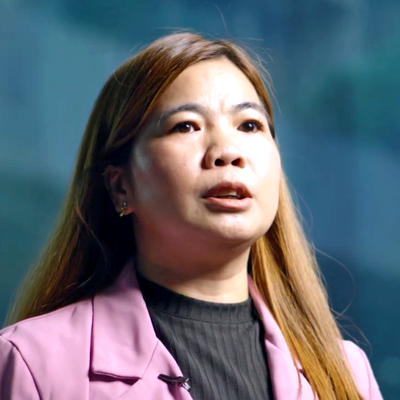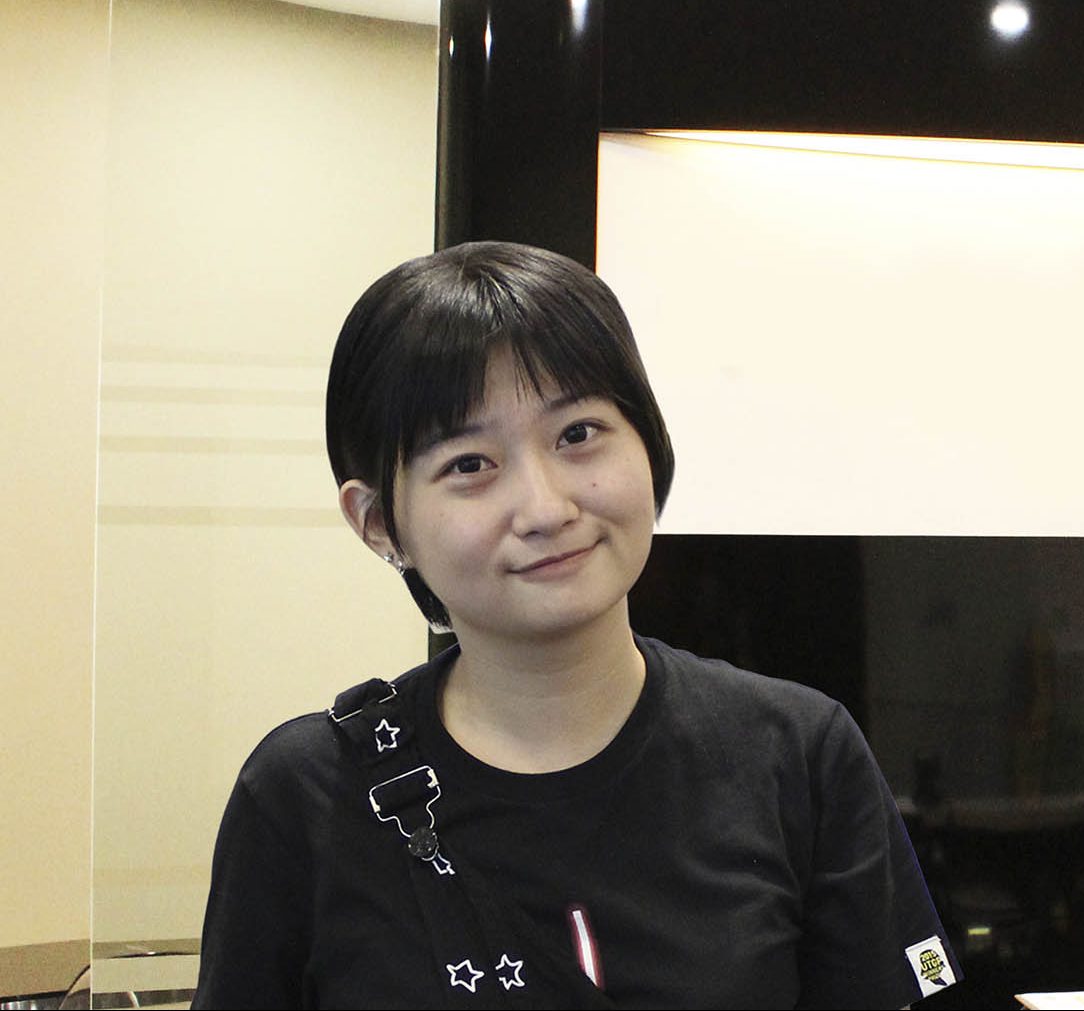
OVERVIEW
About This Programme
The Diploma in Applied Hospitality Skills, developed by the London School of Business and Finance (LSBF), is designed for students seeking a qualification to launch their careers in the hospitality industry.
This programme offers foundational knowledge and insights into key aspects of the hospitality sector while providing a hands-on, practice-based environment. Students will develop essential practical skills required to excel in the industry.
Throughout the programme, students are fully supported through formative assessments, offering valuable feedback on their progress. Performance is closely monitored to ensure the programme meets both academic and personal development needs.
Additionally, industry partnerships ensure the curriculum remains relevant and aligned with the demands of a career in hospitality management.
42% of the 2024 cohort earned distinctions
Unlock a UK degree pathway in just 16 months
Gain valuable experience with a 6-month industrial attachment
Learn from expert educators and industry practitioners
MODULES
Designed to explore beyond subject knowledge
Front Office Service
Equip learners with knowledge and skills required to work as part of a Hotel reception team. Learners will develop knowledge and skills required for handling guest arrivals and departure.
They will also be able to understand the importance of using correct communication when interacting with guests.
Learners will develop an understanding of the role played by demographics, culture and nationality and how this can assist in interacting with guests and providing a more personalised service.In addition learners will through practical activities develop confidence in handling guest requests and dealing with challenges that typically arise during a guests stay or during check out.
Food and Beverage Service
To equip learners with the knowledge, skills and competence to offer service in a hotel or restaurant. Develop the relevant knowledge, skills and competence to perform effectively in a restaurant environment under direction and with limited authority in familiar situations.
The reputation and success of any restaurant often depends on the staff serving customers. Customers will judge a hospitality business by how they are greeted and the contact with staff during their meal.
Learners will gain an understanding of the importance of developing a professional approach to food and drink service and ensure that they have the right attitude and good personal presentation in all aspects of their work.
Learners will develop knowledge and skills of the concept of hospitality and the role played by Food & Beverage Operations with Hospitality operations. Learners will develop the knowledge and practical skills in the preparation of food and drink service and serving customers.
Develop knowledge and skills of how to take customers’ orders and the correct procedures to follow when serving food and drinks and clearing tables.
Demonstrate a limited range of practical and cognitive skills and tools used in a variety of restaurant situations.
This module should encourage learners’ enjoyment of enthusiasm for servicing food and drink in the hospitality business.
Housekeeping Skills
To equip learners with the knowledge, skills and competence to service a hotel room.
The housekeeping department is integral to the effective running of any hotel and the organisation’s success and customer satisfaction.
This module will develop learners understanding of the correct methods and techniques to use when cleaning, servicing and maintain guest rooms.
Learners will gain knowledge and skills in the cleaning and serving procedures that must be used and understood by housekeeping staff.
Learners will cover safe working practices and procedures when using different types of cleaning equipment and chemicals, and will be given opportunity to both observe and practice the procedures that must be followed.
Identify appropriate cleaning agents and polishes for a range of room cleaning tasks.
Demonstrate correct workflow for cleaning tasks and correct techniques for cleaning, bed making and preparing room for guest, including use of checklists.
Customer Service Skills
To provide an introduction to customer service in the hospitality and tourism industry.
Customer service is at the heart of a successful business. The hospitality sector relies on excellent customer service to keep customers satisfied and returning to them. Any member of staff working in the sector will be expected to present themselves in a professional way, have good interpersonal skills and be able to communicate effectively with their customers.
Learners will look at the importance of providing excellent customer service and the characteristics of excellent customer service as it related to the hospitality sector.
Learners will develop an understanding of the importance of communication and gain hands on experience in developing key communication skills. They will also develop an understanding of customers’ need and expectations.
Manage/resolve complaints, including how good communication skills can help deal with these situations.
Demonstrate required knowledge and skills to manage interaction with guests in a range of different situations.
Food sanitation, Health and safety
A safe, hygienic working environment is essential for all hospitality businesses.
Learners will develop knowledge of food safety and well as general health and safety issues.
Learners will gain an understanding of the importance of good personal hygiene and how this helps reduce the risk of food related illness and food poisoning.
Demonstrate knowledge of personal workplace hygiene practices.
Learners will be taught basic workplace health and safety and why this is essential to the running of any hospitality business.
Identify and describe common health and safety issues related to the industry.
Full programme structure & learning outcomes
Get details and learn about the advantages of learning with LSBF.
what to expect
Kickstart Your Career in Hospitality
Programme Aims
The aims of the course are:
- To provide the required skills and knowledge for entrants into the hospitality industry to develop the necessary understanding and competency to enable them to enter the industry and add value upon entry. The qualification is designed for people who wish to enter the hospitality industry.
- The Diploma in Applied Hospitality Skills can also be used as a progression route for students who subsequently wish to further their educational qualifications.
Summary of Skills Development for Students within the Programme
- Providing work related learning and teaching.
- Advance study of organisations, business management and the changing external environment in which organisations operate.
Programme Outcomes
- To develop the professional skills that are required by the hospitality industry
- To enable students to develop the language skills required by the hospitality industry
- To motivate students to continue their higher education in the hospitality industry
Skills you will acquire

$92,000+
median Singapore salary for Accounting
483,000+
Singapore job openings in Accounting
75%
of graduates report positive career outcome
programme structure
mode of delivery
Lecture / Tutorial / Seminar / Workshop (Lab Work) / Practical at Mock Room
33 hours (11 lessons of 3 hrs each)
- 24 hrs Synchronous
- 09 hrs Asynchronous
Industrial Attachment programme
Industrial Attachment
Industrial Attachment is part of students’ educational development. This enables theoretical learning in the classroom to be applied to practical learning situations and encourages application of theory and knowledge in appropriate context. Industrial Attachment applies to all students. Students who are already working may produce a letter from their respective employers to show minimum six months work experience in the relevant industry (subject to school’s approval) for exemption to IA.
To be eligible for Industrial Attachment a student must have passed a minimum of 4 modules during their course of study.
Students who commence an Industrial Attachment and subsequently fail to complete this will not be awarded the Diploma in Applied Hospitality Skills but will be awarded Certificate in Applied Hospitality Skills as an Exit award.
The Industrial Attachment is considered to be an integral part of the Diploma. In the unlikely event that a student cannot be placed for IA LSBF will allow the student to complete a 3000 word project in a maximum of 2 months.
Where students specifically request they may be granted the option of completing a Project rather than undertake the Industrial Attachment. The project (3000 words) topic is assigned by the school, students have a maximum of 2 months to complete the project after approval. Students must still meet the same eligibility requirements (4 passes) to take the project.
On completion of Industrial Attachment/Project students will be able to:
- Understand the importance and role of a hospitality industry during the actual work experience
- Understand how to overcome issues and problems faced by the industry on a day to day basis
- Knows about the standard practices and general laws of the industry and how they impact the business
- Demonstrate and establish interest in the activities and task given by applying the knowledge and skills learnt in school
- Understand how every individuals can take personal responsibility to reach the objective of the organisation
assessment, graduation and awards
Assessments ProfileAssessments Profile
For all module with the exception of Food Sanitation, Health and Safety
- MCQ/Written Exam (30%) – 1.5 hrs exam in an exam hall
- Demonstration/Role play (competency based) 70%
Skills Demonstration/Role Play
Used to assess a wide range of practical based learning outcomes including practical skills and knowledge. A skills demonstration will require the learner to complete a task or series of tasks that demonstrate a range of skills.
Food Sanitation, Health and Safety
Which will be assessed as follows:
50% in class tests (Presentations/Test/Class Activities) + 50% Written Exam – MCQ (1.5hrs in an exam hall)
Industrial Attachment
Industrial Attachment is part of students’ educational development. This enables theoretical learning in the classroom to be applied to practical learning situations and encourages application of theory and knowledge in appropriate context. Industrial Attachment applies to all students. Students who are already working may produce a letter from their respective employers to show minimum six months work experience in the relevant industry (subject to school’s approval) for exemption to IA.
To be eligible for Industrial Attachment a student must have passed a minimum of 4 modules during their course of study.
Students who commence an Industrial Attachment and subsequently fail to complete this will not be awarded the Diploma in Applied Hospitality Skills but will be awarded Certificate in Applied Hospitality Skills as an Exit award.
The Industrial Attachment is considered to be an integral part of the Diploma. In the unlikely event that a student cannot be placed for IA LSBF will allow the student to complete a 3000 word project in a maximum of 2 months.
Where students specifically request they may be granted the option of completing a Project rather than undertake the Industrial Attachment. The project (3000 words) topic is assigned by the school, students have a maximum of 2 months to complete the project after approval. Students must still meet the same eligibility requirements (4 passes) to take the project.
On completion of Industrial Attachment/Project students will be able to:
- Understand the importance and role of a hospitality industry during the actual work experiene
- Understand how to overcome issues and problems faced by the industry on a day to day basis
- Knows about the standard practices and general laws of the industry and how they impact the business
- Demonstrate and establish interest in the activities and task given by applying the knowledge and skills learnt in school
- Understand how every individuals can take personal responsibility to reach the objective of the organisation
Graduation and Awards
Grading:
50% required to pass each module; no grading
Graduation:
Pass all modules and complete IA or project.
Exit Award:
Where students are unable to complete the course they may be given the option of an Exit Award if the meet the following criteria:
- Passed 4 modules
In such cases the student will be awarded the following:
Certificate in Applied Hospitality Skills
Teacher student ratio
Lectures:1 Teacher to 100 students
Practical sessions:1 Teacher to 20 students
STUDENT SUPPORT SERVICES
Why choose LSBF for your education
Study Materials
Students will receive study materials after they have made full payment for their programme. Replacement of study materials is subject to additional charge.
Student Portal
Students have access to the Student Portal. It is a useful site where the course information and learning materials are available for students’ easy reference.
Accessible Faculty
Students may contact their lecturers directly via email outside the lecture hours for any academic related queries.
Recorded Lectures
We will show compassion and care to all stakeholders as we believe the journey is as important as the outcome.
ELIGIBILITY
Who can apply
minimum age requirement
18 years old
Minimum Academic Entry Requirement
- Four ‘GCE O’ levels (min C6) or equivalent, or
- Three ‘O’ levels and 1 ‘A’ level, or
- Completion of the equivalent of Year 10, or
- Completion of appropriate Foundation/Certificate programme; or
- Mature Entry Route (MER) minimum age of 21
Minimum English Language Entry Requirement
- English: GCE ‘O’ level English minimum D7, or;
- IELTS 5.0 or equivalent, or;
- All international students for whom English is not their first language or who have not studied in an English language medium must provide evidence of their linguistic ability at IELTS 5.0 or equivalent.
TUTION FEES
SGD $6,409.20
(local students)
SGD $7,569.44
(international students)




















